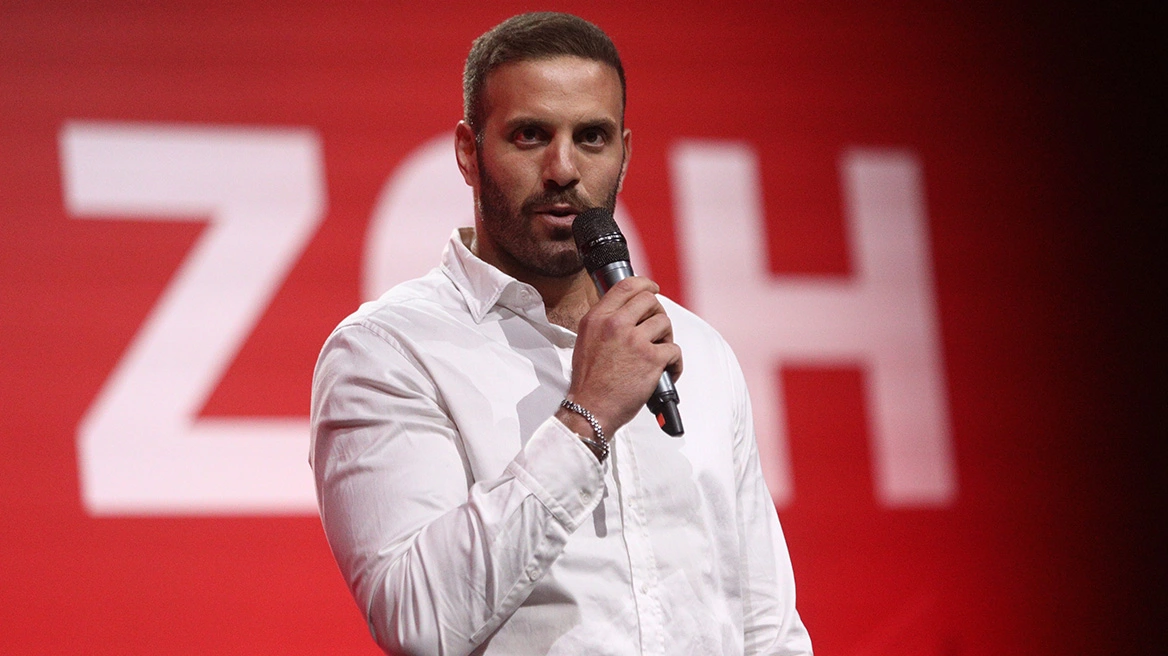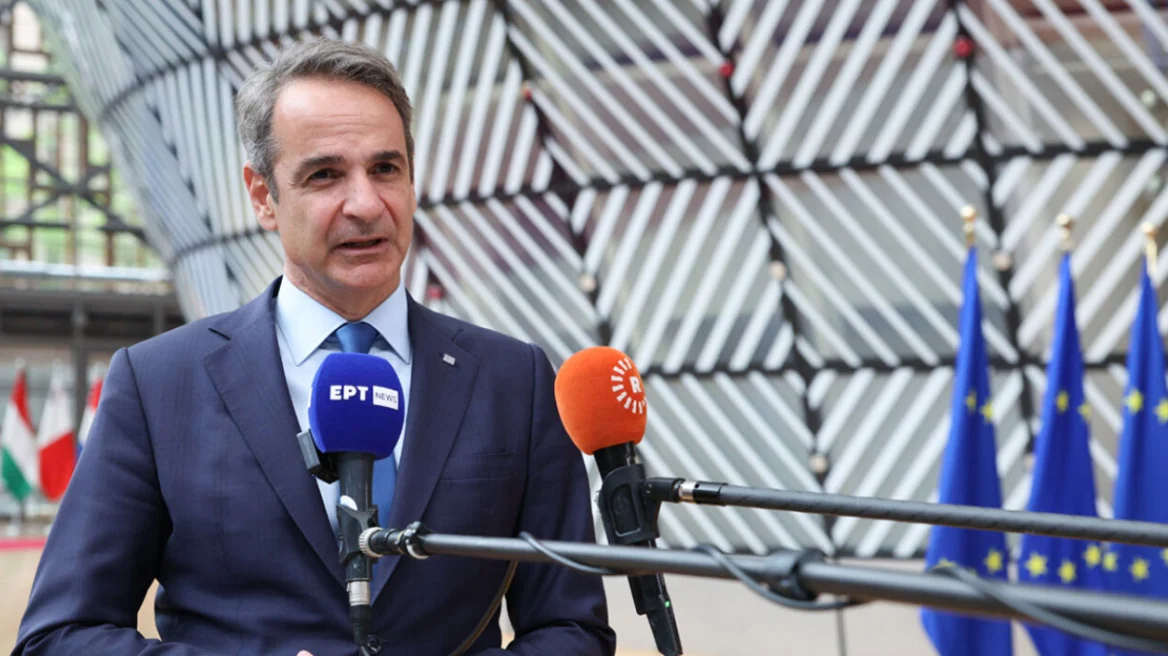The Minister of Labour, Niki Kerameos, called on the opposition to clarify whether she wants to create a safety net for workers with a minimum wage of 1000 euros or to abolish this safeguard and leave open the possibility of reducing it after an agreement between the social partners, the draft law on “transposing the European directive on adequate minimum wages in the EU and the adjustment of wages in the public sector” has been finalized in the Parliament’s Social Affairs Committee.
For their part, the opposition parties accused it of misleading communication tactics, stating that they voted against the bill because it does not properly incorporate the EU directive, focusing their strong criticism mainly on the vague – as they claimed – financial criteria that the algorithm will take into account when determining the minimum wage increase.
Only New Democracy MPs supported the principle of the bill, while Syriza, KKE, New Left, and PASOK along with Elliniki Lysi voted against it from the opposition parties, NIKI, Pleisi Eleftherias, and Spartiates reserved the debate for the plenary session, which is scheduled to start tomorrow at noon.
“In plenary, the answers will now be given as to why the opposition MPs do not want a safety net for a minimum wage of €950 and above, and from there onwards the social partners will decide on further increases. Why not limit the conclusion of employment contracts to above and not below wages? Why do you in the Opposition not want a safety net, a safety net of EUR 1000 for workers? Do you have an answer to the question, if the collective agreement leads to a lower figure what happens? If the minimum wage is abolished and the partners agree to 800 euros? Is this what you want the message to the market in 2025, 2026, 2027?”
The Labour Minister said, commenting on the attitude of the opposition parties.
Kerameos spoke of “an exhaustive, exemplary, fully comprehensive and absolutely honest dialogue that preceded it with the social partners”, and called on the opposition not to be laconic, claiming that Greece is at the bottom of the EU in terms of the minimum wage.
“Greek workers are neither at the bottom nor in the best position Compared to the EU, Greece is in 11th place. Yes, we are not in the best position, yes we want to be higher, but we are not in the bottom either,” Kerameos said.
At the same time, she rejected accusations that the algorithm does not take into account important fiscal data of Greece, such as accuracy, countering that “we say that the Greek formula should link two very basic elements, inflation and productivity growth, to make the minimum wage even more favorable.”
Kerameos categorically denied accusations “about a window of derogation left by the government for wage cuts”, stressing that “EU law explicitly prohibits this and stipulates that no wage cuts are allowed.”
For his part, PASOK’s general rapporteur Pavlos Christidis called the government’s policy “phobic, conservative, neoliberal”.
“The Southwest is making an obvious political fraud at the expense of workers and the economy. It is trying to deceive everyone by incorporating the EU directive as it sees fit, without fully adopting its essence and spirit, which is the safeguarding and adequacy of the minimum wage for workers and the economy. It claims to be forming a safety net. However, this net is full of holes,” Christides said.
He said, “PASOK is opposed to the algorithm proposed by the government for setting the minimum wage, as, contrary to the EU directive, it does not take into account several specific fiscal and economic data so that increases exceed inflation and in essence legislates poverty.”
“The government is looking with distorting lenses at the EU directive whose aim is to safeguard the minimum wage of workers through consultation between the social partners. We have asked and given the government time to incorporate it properly. Our position is not to the government’s willingness to violate it and to legislate only in favor of employers, at the expense of workers, leading, especially the vulnerable, to further impoverishment”, said the general rapporteur of SYRIZA, Charalambos Kalamatianos.
He also argued that “there is no guarantee for an increase in the minimum wage, while on the contrary, it gives the possibility, by invoking budgetary reasons, to proceed either to freeze or even reduce the minimum wage.”
We vote against and demand that the minimum wage be determined by general collective agreements after consultation of the social partners,” he stressed.
“The withdrawal of the provocative, unpopular, anti-worker and reactionary bill, which dismantles labor rights and condemns workers to permanent austerity and poverty,” KKE special rapporteur Christos Katsotis called for.
“The government incorporates the EU directive under the false title of adequate minimum wages for workers, while in fact those it secures are only business groups and their profits.
The algorithm it adopts will keep wages at the minimum levels, while at any time budgetary data can be invoked to reduce them,” Katsotis said.
For “ambiguities, deviations, and vagueness in several regulations”, the special rapporteur of Hellenic Solution, Maria Athanasiou, spoke, stressing that “the bill is just a wishful thinking, without binding provisions for substantial safeguards for a decent living for workers”.
She also stressed that “despite the EU directive that requires equalization of wages for workers in the private and public sector, this will not happen, as the 13th and 14th salaries for civil servants have been abolished, so the government’s effort as it claims is not feasible.”
The New Left’s special rapporteur, Theano Fotiou, said her party “votes against, because it is a supposed incorporation of the European directive, but with government policies that prevent instead of facilitating the increase of workers’ incomes, continuing to hit them brutally.”
“The whole effort of the government is to counterfeit the EU directive so that nothing changes in the policies of impoverishing workers. It remains unchanged its conservative, neoliberal model that consolidates and perpetuates the memorandum policies,” Fotiou added.
“The bill does not fulfill the real objectives of the EU directive which are, adequate wages for a decent living for workers and increases through the signing of collective labour agreements, through consultation between the social partners,” said NIKIS’ special rapporteur, Nikolaos Papadopoulos.
“Problems and gaps arise in the transposition of the EU directive. Increases in the minimum wage of workers will not be made after consultation of the community partners, nor is it provided anywhere in the bill that their opinion will be binding on the government,” argued Spartans’ special rapporteur Petros Dimitriadis.
On the side of Eleftherias Eleftherias, Alexandros Kazamis reserved for the plenary session, stressing that his party “considers that the working conditions of workers are at a problematic level compared to the EU and will deal with the bill from the point of view of defending their rights and incomes.”
Finally, the general rapporteur of the New Democracy party, Stavros Papasotiriou, attacked the opposition, accusing it of “holding a position that is both with the gendarme and the policeman.”
Ask me anything
Explore related questions





